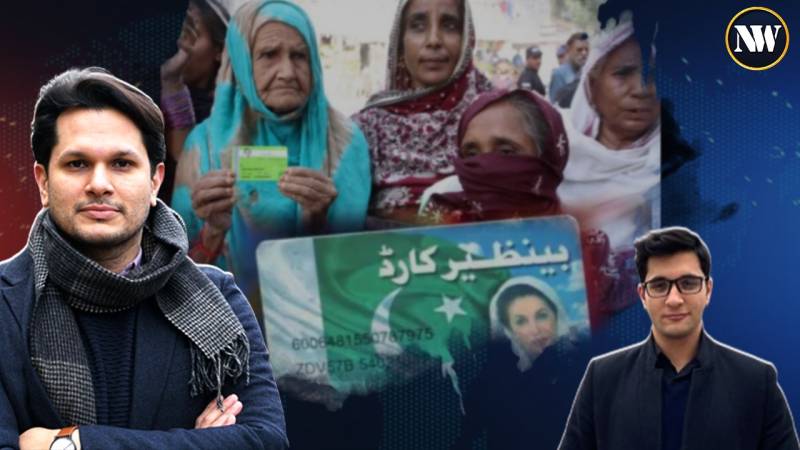Poverty and gender disparities persist in Pakistan, and social safety nets have become crucial tools for tackling these issues. The Benazir Income Support Program (BISP) is one such initiative that has undergone a remarkable evolution, aiming to alleviate poverty and empower women. A recent conversation between Zeerak Rana and Dr. Rehan Rafay Jamil delves into the journey of BISP, its transformation, and its impact on Pakistan's socio-economic landscape.
As a flagship program of the PPP government, BISP was initiated in 2008 with the goal of providing financial assistance to vulnerable households. However, its early implementation faced challenges, with accusations of favoritism and inefficiency. The program's discretionary selection process raised concerns about transparency and corruption. Critics argued that the program was prone to misuse for political gains, undermining its intended purpose of poverty alleviation.
Recognizing the shortcomings of the initial approach, the World Bank stepped in to introduce a Proxy Means Test (PMT) targeting mechanism. This marked a significant turning point in the program's evolution. The PMT aimed to reduce subjectivity in beneficiary selection by using verifiable socio-economic indicators. This approach involved assessing households based on ownership of assets and durable goods, allowing for a more objective determination of eligibility.
While the PMT implementation was a logistical challenge, requiring a nationwide survey to collect relevant data, the shift from manual selection to the PMT was pivotal in addressing concerns related to transparency and corruption. By adopting a standardized methodology, BISP aimed to ensure that the most deserving households received assistance, regardless of political affiliations.
Amidst the implementational efforts, the political landscape in Pakistan was and continues to be marked by polarization, with parties often at odds over various policies. BISP was not immune to these dynamics, as its branding and naming became subjects of contention. The program's name, bearing the legacy of Benazir Bhutto, led to debates about its political agenda. Supporters saw it as a tribute to a pro-democracy icon, while critics argued that the program's name should be apolitical and institution-based.
Perhaps ironically, despite the political debates, successive governments recognized the positive impact of BISP and its popularity among beneficiaries. This realization led to a surprising trend – even opposition parties, once critical of the program, continued and expanded it when they came to power. This suggests that policy continuity and the tangible benefits witnessed on the ground outweighed political differences.
By and large, the distinctive feature of BISP is its intentional focus on women recipients. By targeting women as beneficiaries, the program aimed to empower them economically and politically. One of the notable outcomes was the increase in women's enfranchisement through national identity cards. Historically marginalized women, who had limited access to official identification, were now empowered to engage in civic activities such as voting. BISP also played a role in reducing economic dependency on local patrons and intermediaries. With regular cash transfers, households could break free from the cycle of debt and reliance on informal lenders. This newfound economic autonomy allowed women to make decisions about their family's welfare, contributing to the overall well-being of the household.
While BISP's evolution has been remarkable, challenges remain. The program's sustainability depends on political will, fiscal constraints, and effective governance. Ensuring that the program reaches its intended beneficiaries and remains immune to political manipulation is a constant endeavor.
As the program continues to operate, there is room for expansion and improvement. The program's impact on poverty alleviation and women's empowerment has been significant, but there is potential for further enhancement. By incorporating training and skill development, BISP could equip beneficiaries with tools to break the cycle of poverty in the long term.

